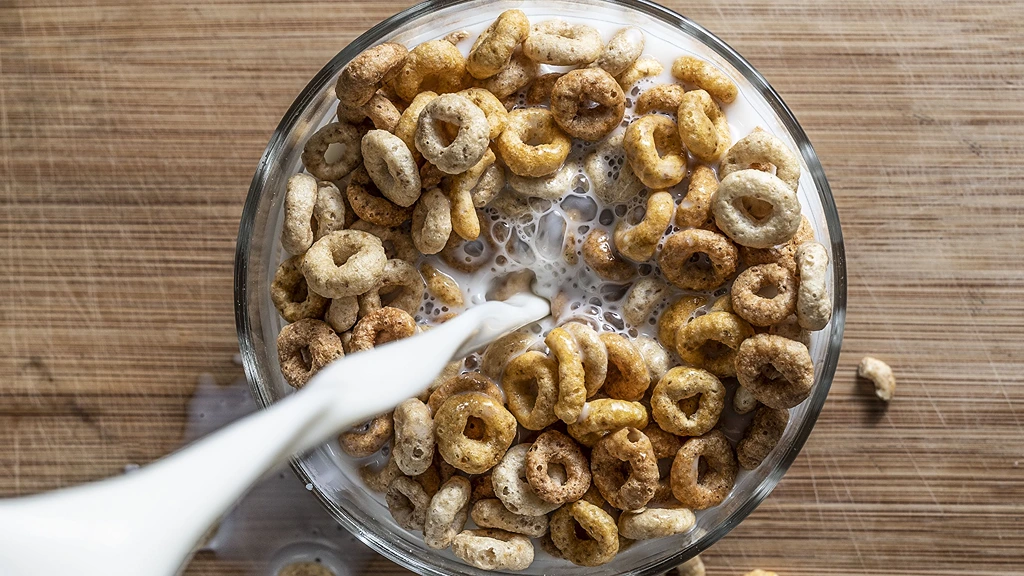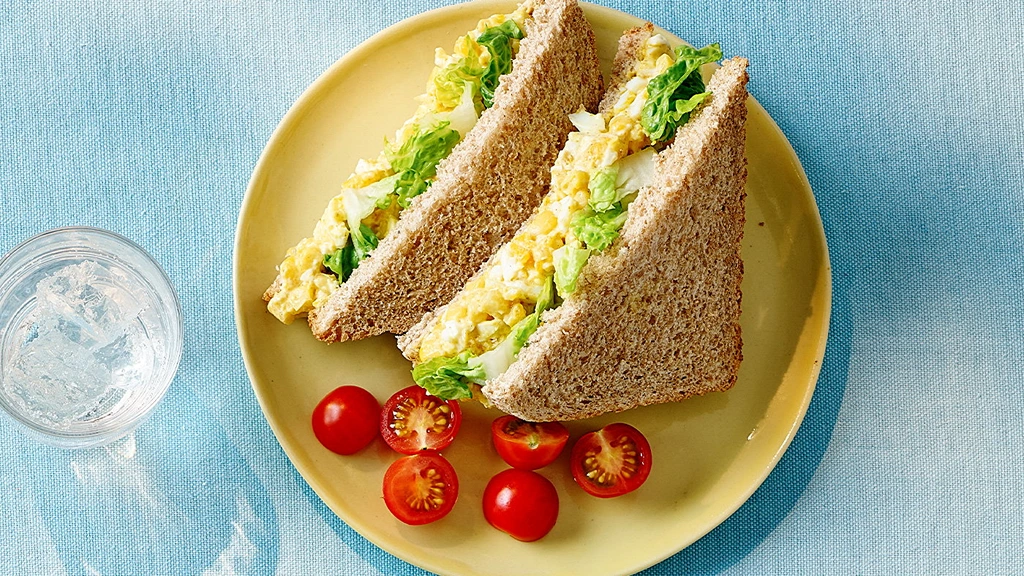Breakfast is a crucial activity to kickstart the day due to its numerous benefits. These include providing fuel for the day, enhancing brain power, and maintaining immunity. Unfortunately, certain breakfast habits can actually weaken the immune system, leading to a loss of energy. Therefore, it is important to be aware of unhealthy breakfast habits that can negatively impact our health.
The following are 11 unhealthy breakfast:
1. Adding Additional Sugar
 Consuming too much added sugar in breakfast menus such as sugary cereals, cakes, white bread, and pancakes can have a negative impact on the health of white blood cells. White blood cells, or leukocytes, are part of the immune system that fights infection and disease. Therefore, it is important to eat a balanced breakfast and be low in added sugar. Some healthier breakfast options include low-sugar cereal, whole-grain bread, eggs, fresh fruit, low-fat yogurt, green smoothies and oatmeal.
Consuming too much added sugar in breakfast menus such as sugary cereals, cakes, white bread, and pancakes can have a negative impact on the health of white blood cells. White blood cells, or leukocytes, are part of the immune system that fights infection and disease. Therefore, it is important to eat a balanced breakfast and be low in added sugar. Some healthier breakfast options include low-sugar cereal, whole-grain bread, eggs, fresh fruit, low-fat yogurt, green smoothies and oatmeal.
2. Not drinking enough water.
 Start breakfast by drinking water first. Apart from increasing metabolism and giving an energy boost, drinking water according to studies can also help you lose weight. This is because water can cause a fuller effect faster. Drinking water can also make the skin supple. Aim to drink 6-8 glasses of water each day, and make sure your urine is only a light-yellow color.
Start breakfast by drinking water first. Apart from increasing metabolism and giving an energy boost, drinking water according to studies can also help you lose weight. This is because water can cause a fuller effect faster. Drinking water can also make the skin supple. Aim to drink 6-8 glasses of water each day, and make sure your urine is only a light-yellow color.
3. Eat Oatmeal and Yogurt
 Not all oatmeal, yogurt and cereal are good for consumption because some types are high in added sugar. Excessive sugar consumption can cause various health problems, including the risk of obesity, diabetes and heart disease. To keep our breakfast healthy, it is advisable to choose plain oatmeal, yogurt, and cereal that do not contain added sugar. You can still add sweetness by adding some fresh fruit, such as bananas, strawberries, blueberries or apple slices.
Not all oatmeal, yogurt and cereal are good for consumption because some types are high in added sugar. Excessive sugar consumption can cause various health problems, including the risk of obesity, diabetes and heart disease. To keep our breakfast healthy, it is advisable to choose plain oatmeal, yogurt, and cereal that do not contain added sugar. You can still add sweetness by adding some fresh fruit, such as bananas, strawberries, blueberries or apple slices.
4. Avoid Foods Rich in Antioxidants
 Adding vegetables to your diet is a great way to get the antioxidants that are important for health and longevity. Vegetables, such as spinach and tomatoes, are rich in nutrients and antioxidant compounds that can protect the body from oxidative damage caused by free radicals. Combining vegetables with your daily diet, for example in an egg sandwich. You can add sliced fresh spinach or tomatoes as an addition to your sandwich.
Adding vegetables to your diet is a great way to get the antioxidants that are important for health and longevity. Vegetables, such as spinach and tomatoes, are rich in nutrients and antioxidant compounds that can protect the body from oxidative damage caused by free radicals. Combining vegetables with your daily diet, for example in an egg sandwich. You can add sliced fresh spinach or tomatoes as an addition to your sandwich.
5. Large Portion of Breakfast
 Choosing a breakfast with a large enough portion does not mean that the body will have more energy. Eating a lot of food, especially refined carbohydrates, can cause a rapid spike in blood sugar followed by a sharp drop. This can make ones feel hungry more quickly. Some breakfast options that are healthier and provide sustainable energy are protein, fiber, healthy fats, fruits, and the right portion sizes.
Choosing a breakfast with a large enough portion does not mean that the body will have more energy. Eating a lot of food, especially refined carbohydrates, can cause a rapid spike in blood sugar followed by a sharp drop. This can make ones feel hungry more quickly. Some breakfast options that are healthier and provide sustainable energy are protein, fiber, healthy fats, fruits, and the right portion sizes.
6. Consume Pocessed Sausages
 Foods such as sausages can indeed provide pleasure at breakfast, but excessive consumption of meat, especially types of processed meats such as sausages, is not considered healthy in the long run and can contribute to premature aging. Excessive saturated fat in sausages can increase the risk of heart disease and other health problems if consumed regularly. Sausages also contain nitrates which are associated with an increased risk of cancer.
Foods such as sausages can indeed provide pleasure at breakfast, but excessive consumption of meat, especially types of processed meats such as sausages, is not considered healthy in the long run and can contribute to premature aging. Excessive saturated fat in sausages can increase the risk of heart disease and other health problems if consumed regularly. Sausages also contain nitrates which are associated with an increased risk of cancer.
7. Skipping Breakfast
 Some studies have found that people who always eat breakfast are healthier and get more fiber than those who skip it. If we don’t have time for a full breakfast, opting for a nutrient-rich snack like a banana or walnuts is a good option. Feeling lazy to have breakfast creates a possibility of eating too much at night. A good breakfast time is about an hour after waking up. This gives our body time to wake up naturally and prepare our digestive system to accept food.
Some studies have found that people who always eat breakfast are healthier and get more fiber than those who skip it. If we don’t have time for a full breakfast, opting for a nutrient-rich snack like a banana or walnuts is a good option. Feeling lazy to have breakfast creates a possibility of eating too much at night. A good breakfast time is about an hour after waking up. This gives our body time to wake up naturally and prepare our digestive system to accept food.
8. Fast Food Restaurants Sandwiches
 Having breakfast with sandwiches from fast food restaurants such as bacon and egg sandwich have unhealthy levels of total fat, saturated fat and salt. Eating foods that are high in total fat, saturated fat, and salt can increase the risk of developing such as blood pressure and high cholesterol. It is highly recommended that we make our own breakfast sandwich using a whole wheat English muffin, and fill it with eggs and fresh vegetables.
Having breakfast with sandwiches from fast food restaurants such as bacon and egg sandwich have unhealthy levels of total fat, saturated fat and salt. Eating foods that are high in total fat, saturated fat, and salt can increase the risk of developing such as blood pressure and high cholesterol. It is highly recommended that we make our own breakfast sandwich using a whole wheat English muffin, and fill it with eggs and fresh vegetables.
9. Less Intake of Orange Juice
 Reducing your intake of added sugars is an important step in maintaining good health. However, we don’t need to avoid the natural sugars found in fruits and juices. Pure, unsweetened orange juice does contain the natural sugars from citrus fruits, but it also provides important nutrients. Pure orange juice is a good source of vitamin C, fiber and antioxidants. Although pure orange juice provides essential nutrients, it should be consumed in moderation and in balance with other food sources.
Reducing your intake of added sugars is an important step in maintaining good health. However, we don’t need to avoid the natural sugars found in fruits and juices. Pure, unsweetened orange juice does contain the natural sugars from citrus fruits, but it also provides important nutrients. Pure orange juice is a good source of vitamin C, fiber and antioxidants. Although pure orange juice provides essential nutrients, it should be consumed in moderation and in balance with other food sources.
10. Vitamin D Deficiency
 Vitamin D plays an important role in boosting the immune system. Vitamin D can help boost immune function and protect the body from disease. Foods such as salmon, oatmeal, eggs, milk and some juices are good sources of vitamin D. Apart from food, vitamin D can also be synthesized by the body when the skin is exposed to direct sunlight. Therefore, getting enough sun exposure is also a natural way to increase vitamin D levels in the body.
Vitamin D plays an important role in boosting the immune system. Vitamin D can help boost immune function and protect the body from disease. Foods such as salmon, oatmeal, eggs, milk and some juices are good sources of vitamin D. Apart from food, vitamin D can also be synthesized by the body when the skin is exposed to direct sunlight. Therefore, getting enough sun exposure is also a natural way to increase vitamin D levels in the body.
11. Forget Proteins
 Protein plays an important role in maintaining a healthy immune system. Protein is an essential nutrient needed to build and repair body tissues, including immune cells. Breakfasts that contain protein can provide benefits, including making ones feel full longer. Therefore, adding high-protein foods such as eggs, milk and tofu to your breakfast can help meet your protein needs and support your immune system.
Protein plays an important role in maintaining a healthy immune system. Protein is an essential nutrient needed to build and repair body tissues, including immune cells. Breakfasts that contain protein can provide benefits, including making ones feel full longer. Therefore, adding high-protein foods such as eggs, milk and tofu to your breakfast can help meet your protein needs and support your immune system.
Which of the breakfast habits above do you still do? Share your experience in the comments section below.





